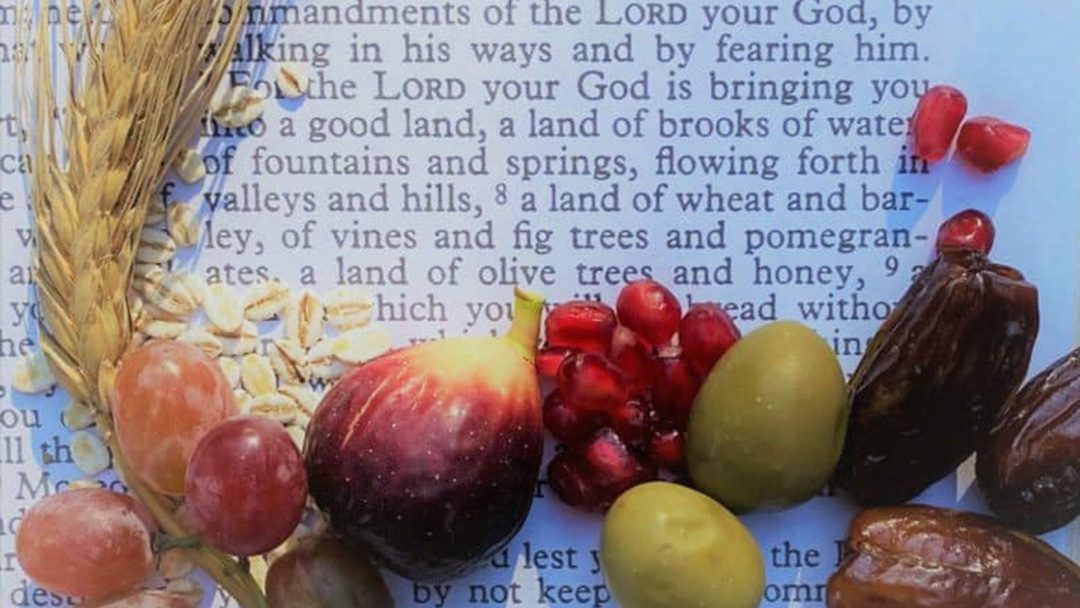The Jewish New Year Rosh Hashanah—recently ended—heralded the beginning of a 10-day period of prayer, self-examination and repentance, the Days of Awe.
This is a time when Jews around the world resolve every year to put right all wrong relationships and to be reconciled with God, with their fellow human beings and with themselves.
How appropriate then that we remember at this very time how Moses, in his final words to the children of Israel, directs their thoughts to God’s heart to restore them when they have failed and wandered away. The Torah portion Ha’azinu— Deuteronomy 32—is all about God and His amazing love and faithfulness!
I like the insight of medieval French rabbi Rashi, who interpreted the request of Moses in verse 2: “Let my teaching drop as the rain, my speech distil as the dew, as raindrops on the tender herb, and as showers on the grass” to refer to the Torah, which, like rain that provides life to the world, should come in small droplets.
Taking Time to Learn
In other words, Moses wanted to teach the children of Israel slowly, the knowledge “raining” down on the people in small portions. If they were to be inundated by huge amounts of information and knowledge all at once, they would be overwhelmed.
Don’t we live in an age of information overload? I certainly struggle with information bombarding me from every direction and from multiple sources, and by opinions of all kinds parading as facts (think Facebook, and the curse of so much social media). Then there are all the lifestyle pressures that serve only to minimise the time I have to even begin to process the stuff flying at me.
That’s why taking time to meditate on the Word of God, allowing it to sink in and as it were permeate our mind and heart and soul, is so important.
There are times when we really do need to stop our busy activity and listen to God and what He wants to say to us.
May we resolve to be like the psalmist in Psalm 119 verse 15:
“I will meditate on Your precepts, and contemplate Your ways.”
May His Word “drop as the rain” and “distil as the dew”, and so—little by little, but surely—change us as we grow in responsibility in a world in which we are called to live and make a difference, all for the glory of God.
Israel’s History
In “The Song of Moses”, which makes up much of Deuteronomy 32, Moses reminds God’s people of their history—from their time of slavery in Egypt, through their 40 years of wilderness wanderings, to their settlement of the Promised Land. Looking both backwards and forwards, he exposes Israel’s sins and anticipates the nation’s future captivity.
Had the people remembered the goodness and tender care of God in times past, none of this prophesied and eventual judgment need have happened.
I want to focus on three verses in particular that highlight God’s loving care, provision and protection, with two beautiful word pictures that speak directly into our lives.
Deuteronomy 32:10-12:
“He found him in a desert land and in the wasteland, a howling wilderness; He encircled him, He instructed him, He kept him as the apple of His eye. As an eagle stirs up its nest, hovers over its young, spreading out its wings, taking them up, carrying them on its wings, so the LORD alone led him, and there was no foreign god with him.”
We meet the phrase “apple of His eye” several times in the Bible.
 ‘Apple’ is ‘iyshon’, which is derived from the noun ‘iysh’, the Hebrew word for ‘man.’ The original Hebrew for this idiom here is ‘iyshon ‘ayin – and so God is saying that He kept Israel as “the little man of the eye.”
‘Apple’ is ‘iyshon’, which is derived from the noun ‘iysh’, the Hebrew word for ‘man.’ The original Hebrew for this idiom here is ‘iyshon ‘ayin – and so God is saying that He kept Israel as “the little man of the eye.”
The reference here is to the tiny reflection of yourself that you can see in other people’s pupils. If you stand really close to someone and the light is just right, you can see yourself, your face, being reflected in the other person’s eyes.
…our prosperity or success is given to us …to distribute and share. We are blessed to be a blessing.
Your image in their eyes! God is so close to Israel His treasured people, loving and protecting and guarding them, that she is seen in His very eyes! And do you know something? God loves every one of us that much!
The next beautiful word picture is that of a mother eagle training her young to fly.
 The eagle’s nest typically consists of briars, thorns and sharp sticks with a lining of animal skins, leaves and feathers. When the eaglets are ready to learn how to fly their mother throws out the comfortable lining.
The eagle’s nest typically consists of briars, thorns and sharp sticks with a lining of animal skins, leaves and feathers. When the eaglets are ready to learn how to fly their mother throws out the comfortable lining.
She “stirs up” the nest by removing all their safety and security—but she herself remains with them. I was fascinated to explore just what the mother eagle does to train her little ones to fly. She lets them fall—even nudges them out of the nest —before swooping down to catch them and carry them to safety. It’s all part of the learning process.
The nest is not their destiny. They were created to fly and soar high into the sky, riding the thermals. Israel was created uniquely by God to fulfil her God-given potential to be a blessing to the world. Just like you and I, created to make a difference in God’s world.
The mother eagle “Hovers over its young, spreading out its wings, taking them up, carrying them on its wings.” The word translated “hover” is only found in one other place in the whole Bible, in Genesis 1 verse 2. When God created the heavens and the earth, “the Spirit of God was hovering over the face of the waters.”
As we continue to learn—at times so slowly—to be all that God has created us to be, truly we are sustained and strengthened by the indwelling Spirit of God. It’s like God is saying to us, “Go out and make a difference for Me, and I’ll protect you from harm as the mother eagle protects her children from harm.”
Friends, be encouraged! When it seems like your world is collapsing around you and you’re feeling desperate, know that God has not abandoned you. He is there hovering over you, guarding and protecting you. He is there to assure you of His love, His presence and His strength when you feel alone and forgotten.
Verses 12-14 remind us that God’s blessing, protection and abundant provision are dependent upon our having no other allegiances, no other “gods” before Him.
He must have first place in our lives.
“So the LORD alone led him, and there was no foreign god with him.”
And so we need never fear. God is with us, like a mother eagle caring for her young. Spread your wings and soar—don’t sit in your nest and grow fat and obese, as Moses puts it in verse 15:
“But Jeshurun [a name for Israel] grew fat and kicked; you grew fat, you grew thick, you are obese! Then he forsook God who made him, and scornfully esteemed the Rock of his salvation.”
Do you see here the warning?
God promises to bless us and provide for us along the way, but prosperity and abundance—as promised here—can result in our forgetting God and thinking that we have prospered because of our own efforts and abilities.
and abilities.
As Rabbi Shaul Rosenblatt says:
“We forget that life itself is a gift; that health, beauty, cleverness, strength, talent, are blessings which may be taken away from us without notice. We are not the ‘manufacturers’ of most of life’s blessings. Nor should we satisfy ourselves with being the ‘consumers’ only.”
We can learn from his reminder that our prosperity or success is given to us not merely to consume and enjoy for ourselves, but to distribute and share. We are blessed to be a blessing. It is that attitude and practice that makes us—as the rabbi puts it—“truly grateful and truly human.”
God’s Father heart is truly broken when His children stray into idolatry and rebellion. His discipline of them at the hands of other nations—recounted at some length in this chapter—gives Him no pleasure. Far better that they should recall His loving, tender care towards them in years past.
And yet God’s compassion will eventually come to the fore to restore His people! Verses 26-35 spell out the eventual punishment of Israel’s conquerors for their arrogance, and God’s heart of faithfulness to His covenant takes centre stage in the closing verses of this song of Moses.
The wonderful truth for us to hold on to is that however far we have strayed from God there is always hope because of His grace and mercy. Implicit in Deuteronomy 32:43, the final verse of the song itself, is the promise that God will forgive and restore His people as they renew their trust in Him.
“Rejoice, O Gentiles, with His people; for He will avenge the blood of His servants, and render vengeance to His adversaries; He will provide atonement for His land and His people.”
We see in this verse the incredible big-heartedness of our covenant-making and covenant-keeping God, ever faithful both to His chosen people the Jews and also to us who have come to know His redemptive love through Jesus.












0 Comments